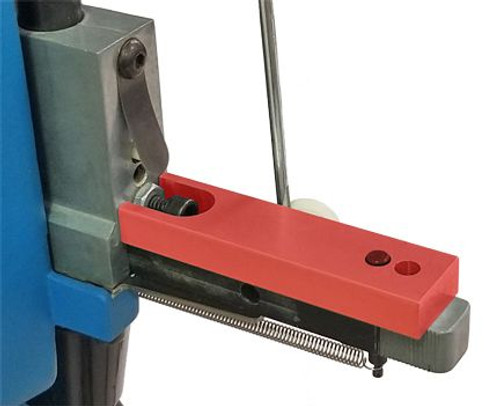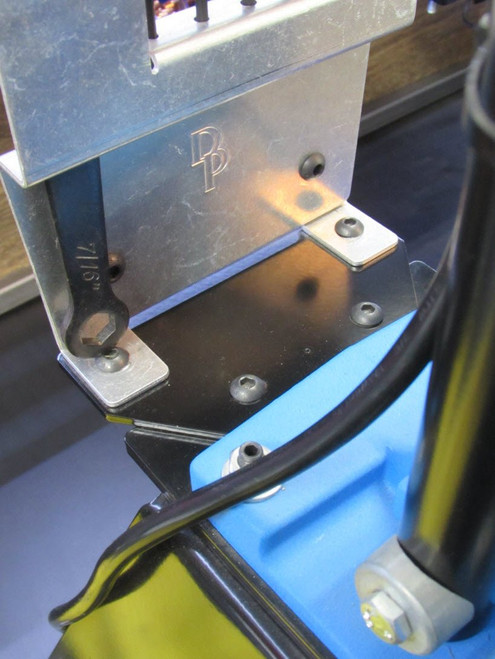Dillon Precision CV-750 Vibratory Case Cleaner Tumbler
Dillon's CV-750 Vibratory Case Cleaner is perfect for reloaders with limited space. The CV-750 bowl is 12" across, the unit is 12" tall. This unit has a capacity of 500 pieces of 45ACP or 38/357, or about 200 pieces of 30-06 brass.
The electrical/electronic components of the CV-750 are covered by a 5 year warranty from date of purchase.
This unit is designed for dry media only.
Use of water or wet media will void the warranty.
Why You Need a Vibratory Case Cleaner
By Duane Thomas
After firing cartridges, the cartridge cases are covered with a thin coating of sooty powder residue. Before reloading, you want to remove that powder fouling. The best way to do that is with a vibratory case cleaner. This is a plastic bowl, with cover, that’s attached to an electric motor. Fill the case cleaner with polishing media (which media to choose – ground-up walnut shells or corncob – will be the topic of a later article), add cartridge cases, drop the cover in place, lock it down, start the motor, which shakes the bowl, causing the media and cases to move around, rubbing against each other. The powder fouling rubs off the cases onto the media. Over time the media can become so dirty it’s actually black. Replacing the media before then is desirable.
So, why clean cartridge cases before reloading them? To start with, that makes it much easier to spot split cases. When a case cracks, that shows up as a black, jagged line running longitudinally along the case body. A black line against a bright brass or nickeled background is easy to see. A black line against a soot-black cartridge case, not so much. It would be nice to catch that split case before you load it, then have to disassemble it with a kinetic bullet puller, or have it fail to fit into your gun’s chamber when you need it to.
If you don’t clean your cases before introducing them into your reloading machine, you’ll wind up feeding powder residue into its dies. Some people worry this will “scratch the dies.” They seriously underestimate just how hard is the steel used in reloading dies. What it WILL do is make the surface of the dies gritty, materially increasing the amount of force needed to insert and withdraw casings, especially from the resizing die that squeezes down the casings, which were expanded by being fired.
There’s also the matter of cleanliness. Handling dirty rounds, loading them into ammo boxes, stuffing them into a revolver’s cylinder or an autopistol’s magazine...do much of that, your fingertips will be black afterwards. Ick. You should always wash your hands after handloading. You just don’t want to have to wash them for an extended period of time to remove huge amounts of black soot.
Also, there’s the matter of pride of manufacture in your handloads. I’ve had people tell me, when examining my handloads, when I carry them to the range in their blue plastic Dillon ammo boxes, “Wow, other than a few nicks on the cases, I can’t tell the difference between your handloads and factory ammo. Those are some pretty handloads.”
Dillon also sells Rapid Polish 290 - an ammonia-free liquid polish. Avoid ammonia-based liquids as a way to clean brass, they’ll attack the brass and weaken it. Add four capfuls of Rapid Polish 290 to the media every so often; you’ll be amazed how bright and shiny-clean your casings come out of the vibratory case cleaner.
1 Review
-
We'll see if it last as long as other Dillon products
Ran my first 2 batches of brass, motor seems really strong used Lucas metal polish in the corn media worked Aces so far !


















